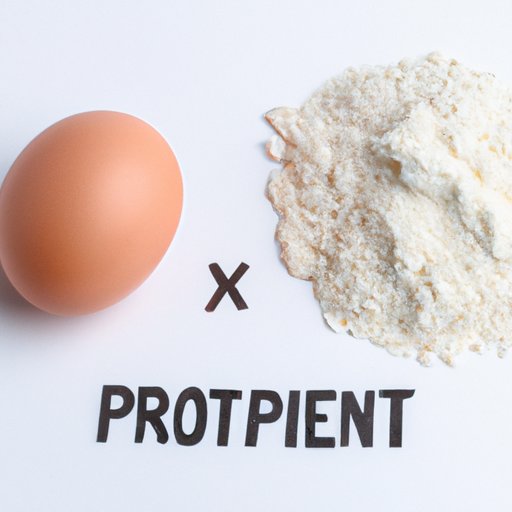
Introduction
Protein is an important nutrient when it comes to weight loss. It helps to maintain lean muscle mass while reducing body fat.
However, overconsumption of protein can lead to negative effects, including weight gain and health problems. In this article, we will explore the potential risks of too much protein and how to determine the right amount of protein for weight loss.
Importance of Protein in Weight Loss and Potential Risks of Overconsumption
Protein plays a crucial role in weight loss as it helps to reduce hunger and increase the feeling of fullness. It also helps to maintain muscle mass while reducing body fat, which is important for long-term weight loss success.
However, overconsumption of protein can lead to negative effects, including weight gain. Additionally, consuming too much protein may put a strain on the kidneys and cause other health problems. It is therefore important to consume protein in moderation and not to rely solely on a high protein diet for weight loss.

Recommended Dietary Allowances for Protein and Its Effects on Weight Loss
The recommended dietary allowances (RDA) for protein vary depending on age, sex, weight, and activity level. For sedentary individuals, the RDA is 0.8 grams of protein per kilogram of body weight.
Consuming more protein than the RDA does not necessarily lead to better weight loss outcomes. In fact, consuming too much protein may lead to weight gain and other health problems, such as kidney damage.
Comparison of High Protein and Low Protein Diets for Weight Loss
A high protein diet is often recommended for weight loss due to its ability to reduce hunger and increase the feeling of fullness. It also helps to maintain muscle mass while reducing body fat. On the other hand, a low protein diet may lead to muscle loss and slower weight loss results.
However, it is important to note that a high protein diet alone is not enough for weight loss. It should be combined with a balanced diet, regular physical activity, and other healthy lifestyle habits for optimal weight loss results.
Tips for Determining Protein Needs and Avoiding Overconsumption
The amount of protein needed for weight loss varies depending on individual factors such as age, sex, weight, and activity level. To determine protein needs, individuals can use online calculators or consult with a registered dietitian.
To avoid overconsumption of protein, it is important to consume a variety of protein sources and not rely solely on animal-based protein sources. Additionally, individuals should pay attention to portion sizes and avoid consuming protein supplements and bars excessively.
Case Studies of Positive Weight Loss with Moderate Protein Intake
While a high protein diet is often recommended for weight loss, case studies have shown that individuals have achieved positive weight loss results with moderate protein intake. For example, a study published in the Journal of Nutrition found that a moderate protein diet combined with exercise resulted in improved weight loss outcomes compared to a high protein diet alone.
Discussing the Scientific Evidence Behind the Efficacy of High Protein Diets for Weight Loss and Its Limitations
Studies have shown that a high protein diet can be effective for weight loss, especially in the short term. However, more research is needed to determine the long-term effects of high protein diets on weight loss and overall health.
It is also important to note that a high protein diet is not suitable for everyone, especially those with kidney problems or other health conditions. It is important to consult with a healthcare professional before starting a high protein diet for weight loss.
Conclusion
Protein is an important nutrient for weight loss, but consuming too much protein can have negative effects. It is important to consume protein in moderation and not to rely solely on a high protein diet for weight loss. By determining the right amount of protein for your individual needs and combining it with a balanced diet and regular physical activity, you can achieve optimal weight loss results.





